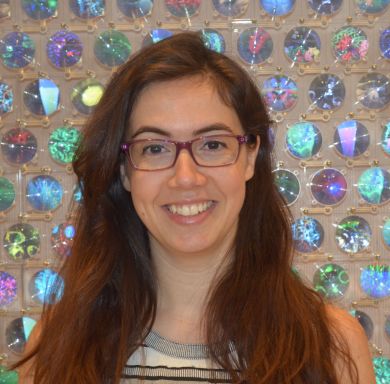Apostolou receives $1.5m NIH New Innovator Award
Dr. Eftychia Apostolou, an assistant professor of molecular biology in medicine at Weill Cornell Medicine, has won a New Innovator Award from the National Institutes of Health for her research on how cells preserve their identity under normal conditions or alter it during pathogenesis, such as cancer.
Established in 2007, the New Innovator Award supports exceptional early-career investigators who are pursuing bold, new approaches for some of the greatest biomedical challenges. Dr. Apostolou is among 48 scientists nationwide to receive the prestigious award, which carries $1.5 million in research funding.
"I'm excited," Dr. Apostolou said. "It was a big personal reward and I'm grateful for the opportunity to pursue my research goals with NIH's support and approval."
Dr. Apostolou's work focuses on the way in which the genome is organized, a concept known as chromatin topology that has only recently been explored. Although scientists have known that genomic architecture is dramatically rearranged when cells divide and faithfully reset in daughter cells, nobody has really studied the underlying mechanisms behind the reorganization and how they influence how genes are expressed and how cell identity is reestablished once division is completed.
With her grant, Dr. Apostolou will investigate how chromatin topology shapes normal cell development and the factors that enable cancerous tumors to form. Specifically, her research will study how transcription factors determine a cell's outcome, and which factors ensure normal, non-cancerous cell division. The findings could help investigators to understand how cancer cells arise and ultimately prevent this transformation. Also, it may open new avenues for directing stem cell differentiation towards therapeutic cell types of interest.
Dr. Apostolou is grateful for the prestige and visibility that this award will give her to facilitate collaborations with other researchers. "As a young researcher you need your first award, a lot of preliminary data, and a high risk and high reward project funded," Dr. Apostolou said. "This award will help me generate the data for future NIH applications and high-profile publications."



